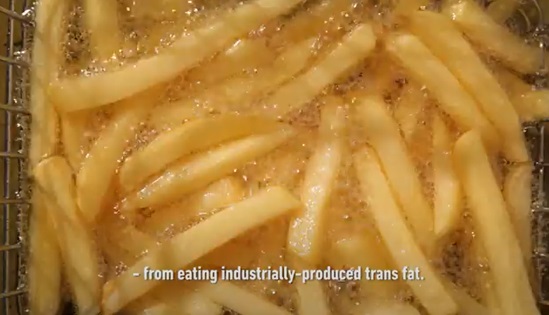
Eliminating industrially produced trans fats from diets in WHO South-East Asia Region
Overview
Industrially produced trans fats are formed during hydrogenation, a process in which hydrogen is added to vegetable oil to form a semi-solid product known as partially hydrogenated oil. Meat and dairy products from ruminant animals, such as cattle, sheep and goats contain trans fat. Industrially-produced TFA (iTFA) are most frequently found in baked and fried foods, prepared snacks, and partially hydrogenated cooking oils and spreads
Consumption of trans fats is associated with heart disease, inflammation, higher LDL cholesterol and lower HDL cholesterol.
WHO has launched the REPLACE initiative, designed to support governments in ensuring elimination of industrially-produced TFA from the food supply by 2023. WHO SEARO provides support to countries to work towards policies that eliminate trans fat from the diet. These include provision of support to countries to examine their policy landscape with regard to the regulatory environment for trans fats, identification of dietary sources of TFA ,development of country capacities and promoting stakeholder awareness and support for the process.
Key facts
- South-East Asia region has made important strides in TFA elimination policies. Thailand has adopted best practice legislative measures to limit industrially produced TFA in foods in all settings.
- In 2011, India set a TFA limit of 10% in all oils and fats, which was reduced to 5% in 2015, 3% for 2021 and 2% by 2022 through an amendment to the Food Safety and Standards (Prohibition and Restriction on Sales) Regulations.
- Countries such as Bangladesh and Sri Lanka have taken steps to identify dietary sources for trans fat are considering implementing regulations.
- Many other countries in the region lack information on trans fat in their food supply to take policy decisions. Therefore, WHO SEARO and HQ are working with RESOLVE to SAVE LIVES and supporting countries such Bhutan, Maldives and Nepal to build the evidence base on trans fats and examine the policy landscape to assess feasibility and actions needed to eliminate industrial TFA from the food supply.

